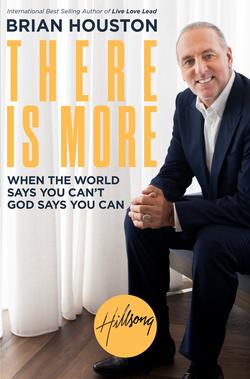Читать книгу There is More: When the World Says You Can’t, God Says You Can - Brian Houston, Brian Houston - Страница 25
The Cost of More
ОглавлениеOne of the foremost examples of obedience in the Bible comes early in God’s Word. The Genesis story of Abraham and Sarah bearing a promised son in their old age is one of those shout-from-the-rooftop, our-God-answers-prayer testimonies. For years, this barren woman carried the shame of her condition, while her husband waited on the fulfillment of a prophecy that he would father multitudes. Multitudes? From a ninety-year-old barren woman? Yet our God once again did the impossible. They named him Isaac, and I imagine he was the joy of their lives. He was the culmination of hope and trust, a promise and a dream that their descendants—through this small child—would be as numerous as all the stars in the sky.
So that is why I find the story of Abraham and his miracle son on a mountain in Moriah perhaps the most confronting story in the Old Testament. As a dad, my natural inclination is always to protect my children and do anything I can to keep them from harm. When they were young, it was “Please hold my hand” when crossing the road or always being careful to double-check the latch on the pool fence. As they got older, it became “Drive carefully” and “Don’t be late,” said kindly but firmly as they walked out the door. It would be true to say that our children tend to keep our prayer lives active, and although I have always been devoted to keeping my word and not canceling preaching appointments, if someone in my family were genuinely in pain or trouble, everything in me would want to rush to his or her side. My commitment and loyalty will always be to family.
That’s why, as a dad, I can’t even contemplate how it must have felt when God asked of Abraham the unthinkable:
It came to pass after these things that God tested Abraham, and said to him, “Abraham!”
And he said, “Here I am.”
Then He said, “Take now your son, your only son Isaac, whom you love, and go to the land of Moriah, and offer him there as a burnt offering on one of the mountains of which I shall tell you.”
So Abraham rose early in the morning and saddled his donkey, and took two of his young men with him, and Isaac his son; and he split the wood for the burnt offering, and arose and went to the place of which God had told him. Then on the third day Abraham lifted his eyes and saw the place afar off. And Abraham said to his young men, “Stay here with the donkey; the lad and I will go yonder and worship, and we will come back to you.”
So Abraham took the wood of the burnt offering and laid it on Isaac his son; and he took the fire in his hand, and a knife, and the two of them went together. But Isaac spoke to Abraham his father and said, “My father!”
And he said, “Here I am, my son.”
Then he said, “Look, the fire and the wood, but where is the lamb for a burnt offering?”
And Abraham said, “My son, God will provide for Himself the lamb for a burnt offering.” So the two of them went together.” (Genesis 22:1–8)
I’ve read this passage numerous times in my Christian journey. We know what comes next, but do we ever stop to think about those moments between the sacrifice and the provision? Obedience. Abraham certainly wasn’t doing it because he wanted to. I imagine he was walking up that mountain trembling, wiping tears from his eyes and sweat from his brow, praying that this wasn’t the moment when God would snuff out His promise.
Think of the conversation when Isaac looked at his father, confusion and innocence on his face. “But Daddy, where is the sheep to kill?”
Abraham’s response—“God Himself will provide the lamb”—was faith filled, but his actions were defining. He didn’t just stop at lip service. The Scriptures tell us he bound his son, laid sticks around him, placed him on the altar, and raised his hand to slay his boy.
Obedience is costly.
